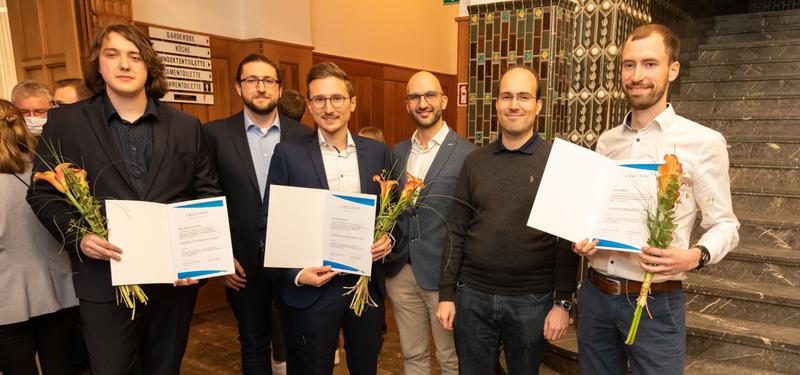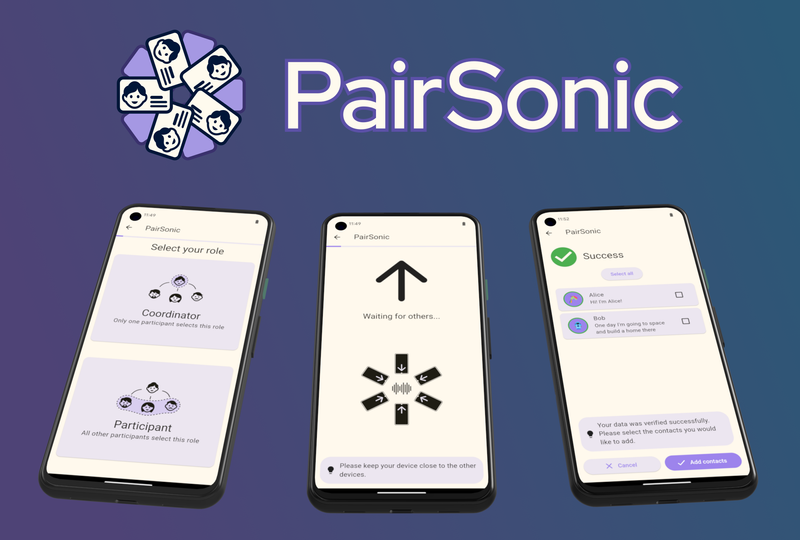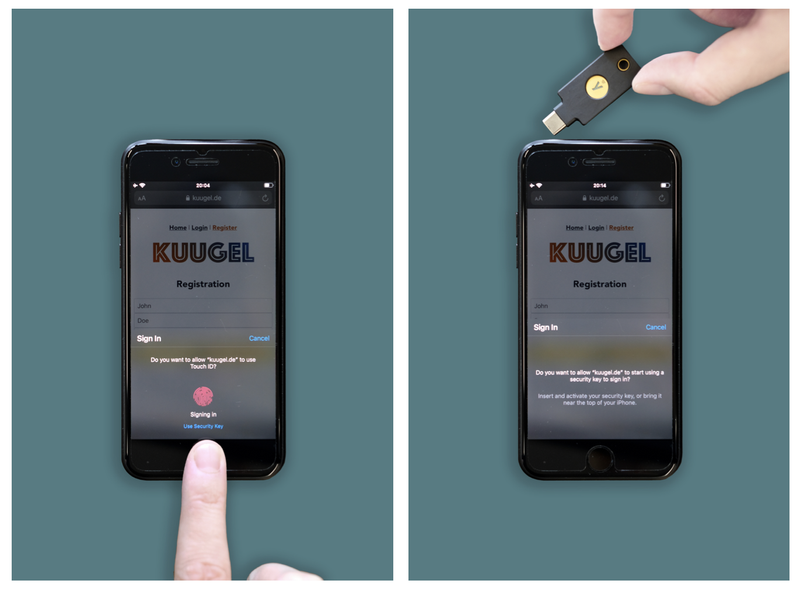We are happy to announce that Andreas Bäuml, Lukas Magel and Ben-Jasper Kettlitz won the Datenlotsen-Preis from 2021 and 2022. Every year, up to four graduates from computer science, mathematics or industrial engineering are honored for their outstanding Bachelor's and Master's thesis. The prices were handed over during this year's ceremony which took place at the Georg-Christoph-Lichtenberg-Haus on the 2nd of December.
Andreas Bäuml won the Datenlotsen-Preis 2021 for his Master's thesis A Framework for Enhanced User Security and Privacy in Radiometric WiFi Fingerprinting. The intrinsic hardware imperfection of WiFi chipsets manifests itself in the transmitted signal, leading to a unique radiometric fingerprint. This fingerprint can be used as an additional means of authentication to enhance security, but it can also be abused to track users. In this thesis, a radiometric fingerprinting solution is proposed that not only is robust against impersonation attacks, but also protects user privacy by obfuscating the radiometric fingerprint of the transmitter for non-legitimate receivers. The thesis was supervised by Arash Asadi.
Lukas Magel won the Datenlotsen-Preis 2021 for his Master's thesis Circumventing ECG Authentication with Deep Generative Models based on PPG Pulse Data. The goal of this thesis is to spoof authentication systems based on electrical heart activity with synthetic ECG (electrocardiogram) samples. To achieve this, optically measured heart activity samples from PPG (photoplethysmogram) sensors are transformed by a cGAN (conditional generative adversarial networks) approach. The thesis was supervised by Matthias Gazzari.
Ben-Jasper Kettlitz won the Datenlotsen-Preis 2022 for his Bachelor's thesis Updating Heterogeneous LoRaWAN Nodes Using A Modular LoRaWAN-Stack. The thesis shows how WebAssembly can be used as a compact, platform-independent representation for functions within a wireless sensor's firmware. It provides a proof-of-concept for using this method to mitigate a security vulnerability in a heterogeneous LoRaWAN sensor network. The thesis was supervised by Frank Hessel.
We thank our students for the fruitful discussions and their tireless efforts leading to these excellent theses.
Image Source/Bildnachweis: TU Darmstadt/Rüdiger Dunker



